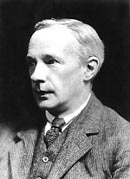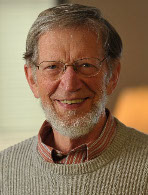









I think that Hume’s two most famous arguments are his argument against induction and his argument against belief in miracles. I also think that if Hume embraced either one of these arguments, he ought to have rejected the other.
Hume’s brief argument against induction is found in his Treatise on Human Nature, Book 1, Part 3, Section 6. Without reproducing Hume’s comments in full, in a nutshell the claim is this: We can only ever observe a finite number of things. There is nothing about examples of things that we have observed that justifies making generalisations about all events of that sort. “From the mere repetition of any past impression, even to infinity, there never will arise any new original idea, such as that of a necessary connexion; and the number of impressions has in this case no more effect than if we confin’d ourselves to one only.” In short, we cannot reason from a finite number of examples that we observe to a general rule that applies to all examples of that sort.
Don’t base your criticism of the argument (if you have one) on my necessarily brief summary. Before commenting on Hume’s argument, read Book 1, Part 3, Section 6 in full here. Failing that, just accept my very brief summary.
Now, what was Hume’s argument against belief in miracles? His position was that we cannot have a justified belief that miracles have ever occurred. Why is this? Hume’s argument against (belief in) miracles is found in section 10 of his Enquiry Concerning Human Understanding.
Suppose, for instance, that the fact, which the testimony endeavours to establish, partakes of the extraordinary and the marvellous; in that case, the evidence, resulting from the testimony, admits of a diminution, greater or less, in proportion as the fact is more or less unusual. The reason why we place any credit in witnesses and historians, is not derived from any connexion, which we perceive a priori, between testimony and reality, but because we are accustomed to find a conformity between them. But when the fact attested is such a one as has seldom fallen under our observation, here is a contest of two opposite experiences; of which the one destroys the other, as far as its force goes.
What about natural events that we have not ourselves experienced? Hume uses the example on an Indian Prince who, because he lives in India, has never seen water freeze. True, says Hume, the Prince should regard the description of frost as extraordinary, but there is still some natural analogy that might be of use in considering whether or not it is possible. Besides, he has never seen water in a very cold place, so he cannot call frozen water in very cold climates contrary to his experience. While the event would be hard to believe, “still it is not miraculous, nor contrary to uniform experience of the course of nature in cases where all the circumstances are the same.” As I start quoting from Hume on miracles, notice the occurrence of phrases like “uniform experience of the course of nature.” Hume gives another example of something that would not be a miracle: “It is no miracle that a man, seemingly in good health, should die on a sudden: because such a kind of death, though more unusual than any other, has yet been frequently observed to happen.”
Let me state for the record that I have never observed a seemingly healthy man suddenly dying. If you tell me that you have seen this, that is all well and good, but to ask me to believe it is a matter of me being asked to accept testimony. But Hume then immediately says: “But it is a miracle, that a dead man should come to life; because that has never been observed in any age or country.”
Notice the step taken here. Hume has said now that in fact – regardless of what you might think has happened in the past – nobody has ever been witness to a resurrection. As soon as Hume says this, of course, he will be justly dismissed by Christians as merely begging the question. At issue is whether or not the New Testament witnesses to the resurrected Jesus really were genuine witnesses or not. To show one’s hand as obviously as this by claiming – as part of one’s argument against belief in miracles – that they were not really witnesses at all, is simply to walk away from genuine debate. But I want to set this collapse of argumentation aside for a moment. I will ignore it and stick with Hume just a little longer for the sake of seeing something else. Hume’s next comment reveals the shape of his argument more or less in totality:
There must, therefore, be a uniform experience against every miraculous event, otherwise the event would not merit that appellation. And as a uniform experience amounts to a proof, there is here a direct and full proof, from the nature of the fact, against the existence of any miracle; nor can such a proof be destroyed, or the miracle rendered credible, but by an opposite proof, which is superior.
Question time: How does Hume claim to have given a proof that no miracle has happened in the past, even when we have testimony telling us that something he would call a miracle has happened in the past? The proof, answers Hume, is that our limited number of observations of what has happened in cases that we can see amounts to the establishment of a uniform rule concerning what has always (and could have) happened in the past. It is, he said, “a direct and full proof.”
Maybe you think this is a good reason to say that no miracle has ever happened, and maybe you don’t. But here’s my second question: What type of argument is this? The answer is that it is an inductive argument. What did Hume say about inductive reasoning?
Glenn Peoples



 In the “nuts and bolts” series, I explain and discuss some of the fundamental ideas in philosophy (and theology sometimes) that are taken for granted within the discipline, but which might not be very well known to ordinary human beings. This time the subject is ethical intuitionism (or moral intuitionism).
In the “nuts and bolts” series, I explain and discuss some of the fundamental ideas in philosophy (and theology sometimes) that are taken for granted within the discipline, but which might not be very well known to ordinary human beings. This time the subject is ethical intuitionism (or moral intuitionism).


